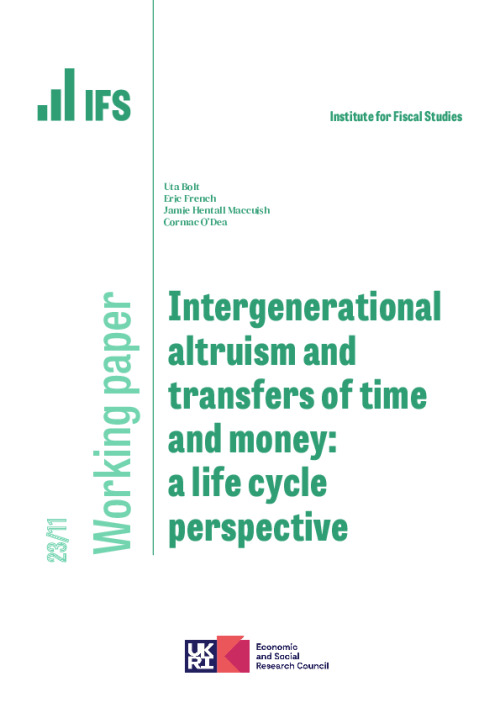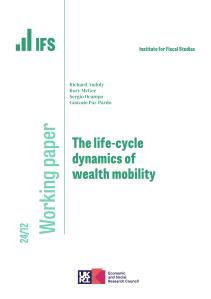Downloads

Download working paper PDF
PDF | 1.85 MB
Parental investments significantly impact children’s outcomes. Exploiting panel data covering individuals from birth to retirement, we estimate child skill production functions and embed them into an estimated dynastic model in which altruistic mothers and fathers make investments in their children. We find that time investments, educational investments, and assortative matching have a greater impact on generating inequality and intergenerational persistence than cash transfers. While education subsidies can reduce inequality, due to an estimated dynamic complementarity between time investments and education, it is crucial to announce them in advance to allow parents to adjust their investments when their children are young.
Authors

Research Fellow University of Bristol
Uta is an IFS Research Fellow and University of Bristol lecturer with an interest in the development of inequalities over the lifecycle.

CPP Co-Director
Eric is the Montague Burton Professor of Industrial Relations and Labour Economics at the University of Cambridge and Professor of Economics at UCL.

Research Scholar University College London

Research Associate Yale University
Cormac is a Research Associate of the IFS, an Assistant Professor of Economics at the Yale University and Research Fellow at the NBER.
Working Paper details
- DOI
- 10.1920/wp.ifs.2023.1123
- Publisher
- Institute for Fiscal Studies
Suggested citation
Bolt, U et al. (2023). Intergenerational altruism and transfers of time and money: a life cycle perspective. 23/11. London: Institute for Fiscal Studies. Available at: https://ifs.org.uk/publications/intergenerational-altruism-and-transfers-time-and-money-life-cycle-perspective (accessed: 27 April 2024).
Grant
Datasets used
More from IFS
Understand this issue

Sure Start achieved its aims, then we threw it away
15 April 2024

Raising revenue from closing inheritance tax loopholes
18 April 2024

If you can’t see it, you can’t be it: role models influence female junior doctors’ choice of medical specialty
24 April 2024
Policy analysis

The short- and medium-term impacts of Sure Start on educational outcomes
9 April 2024

Sure Start greatly improved disadvantaged children’s GCSE results
9 April 2024

What you need to know about the new childcare entitlements
28 March 2024
Academic research

Labour market inequality and the changing life cycle profile of male and female wages
15 April 2024

The life-cycle dynamics of wealth mobility
10 April 2024

Imagine your life at 25: Gender conformity and later-life outcomes
24 April 2024